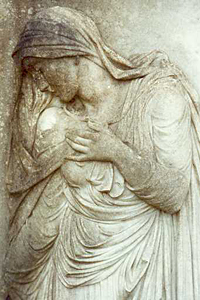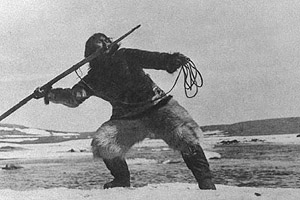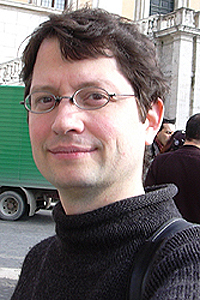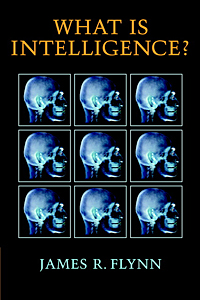October Highlights
 | |
Divinity School
“Mourning and Religion:
Psychoanalytic Reflections on the Role of Religion in Individual and Cultural Loss”
Friday, Oct. 26 and Saturday, Oct. 27
Swift Lecture Hall, Swift Hall, 1025 E. 58th St.
This conference, co-sponsored by the Center for Religion & Psychotherapy of Chicago, will address the connections between religion, mourning and psychoanalysis. The focus will be on the paradox of mourning that follows death and other forms of loss and change. New forms of memory, identity, morality and solidarity can be produced on the individual level, and new cultural products, such as the theoretical inventiveness of psychoanalysis and religious studies themselves, may emerge on the cultural level. Following the work of Peter Homans, Professor Emeritus in Psychology and Religious Studies, who traced the origins of psychoanalysis to Freud’s loss of traditional religious involvement, the conference scholars will consider the roles of religion, mourning and psychoanalysis in the plural and interconnected worlds of belief and doubt, faith and disillusionment, and engagement and critique. For more information contact Celia Brickman at cbrickma@sbcglobal.net or visit http://marty-center.uchicago.edu/conferences/mourning.
 | |
Rockefeller Memorial Chapel
Nanook of the North
8 p.m. Friday, Oct. 26
A tradition at Rockefeller Memorial Chapel pairs a classic silent film with live organ accompaniment, much like the silent films of the past were viewed in movie theaters. Robert Flaherty’s silent documentary film classic Nanook of the North will be screened with live organ music played by Jay Warren. Flaherty captured the life of Eskimo hunter Nanook and his family, who lived in the Hudson Bay region of Canada. Flaherty arrived at Cape Dufferin on northeastern Hudson Bay in August of 1920, and began filming the Eskimos’ daily life, including their hunting for food and building an igloo. Tickets will be available at the door or by reservation at (773) 702-7059; $10, general admission, $8, seniors and students.
 Richard Neer | |
Division of the Humanities
Humanities Day 2007
9:30 a.m.-4 p.m. Saturday, Oct. 27
The University’s 28th annual Humanities Day, the longest-running event of its kind in the city of Chicago, will feature a day of free presentations, discussions, exhibition tours, film screenings and performances across the University campus. Marking this day of humanistic inquiry with his keynote address will be Richard Neer, the David B. and Clara E. Stern Professor in the Humanities, Art History and the College. Neer will discuss Blind Orion Seeking the Sun (1658), a painting by the 17th-century French artist Nicolas Poussin. Neer will explore the painting’s relation to early modern ideas of selfhood, skepticism and science in his presentation, which begins at 11 a.m. in Mandel Hall, 1135 E. 57th St. The daylong event, with three sessions scheduled to begin at 9:30 a.m., 1:30 p.m. and 3 p.m., will welcome the public to the world of literary, linguistic and cultural traditions for which the University is renowned. Registration is required for the presentations and may be completed by visiting http://humanities.uchicago.edu/humanitiesday. Humanities Day information headquarters will be located in the lobby of Stuart Hall, 5835 S. Greenwood Ave. in Harper Quadrangle, on the day of the event.
 | |
Center for Human Potential and Public Policy
The Annual Lecture on Science, Technology & Society
10:30 a.m., Friday, Oct. 26
Room 140, Harper Memorial, 1116 E. 59th St.
http://harrisschool.uchicago.edu/chppp/
Sponsored by the Center for Human Potential and Public Policy at the Irving B. Harris Graduate School of Public Policy Studies, this lecture will feature James Flynn (A.B.,’52, A.M.,’55, Ph.D.,’58), professor emeritus of political studies and psychology at the University of Otago, New Zealand. Flynn will speak on the four paradoxes that have plagued the theory of intelligence. Flynn is credited with documenting massive IQ gains from one generation to another, what is known as the Flynn Effect. This lecture will be based on his current book, What Is Intelligence? Contact (773) 702-3402, or ljspinde@uchicago.edu for more information.
![[Chronicle]](/images/sidebar_header_oct06.gif)